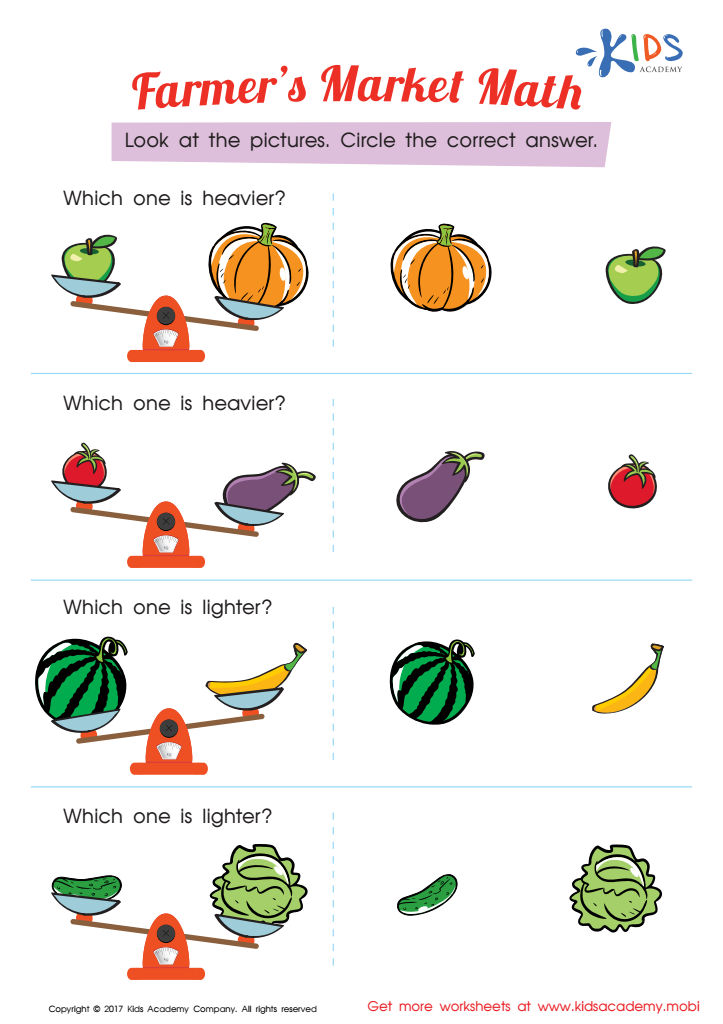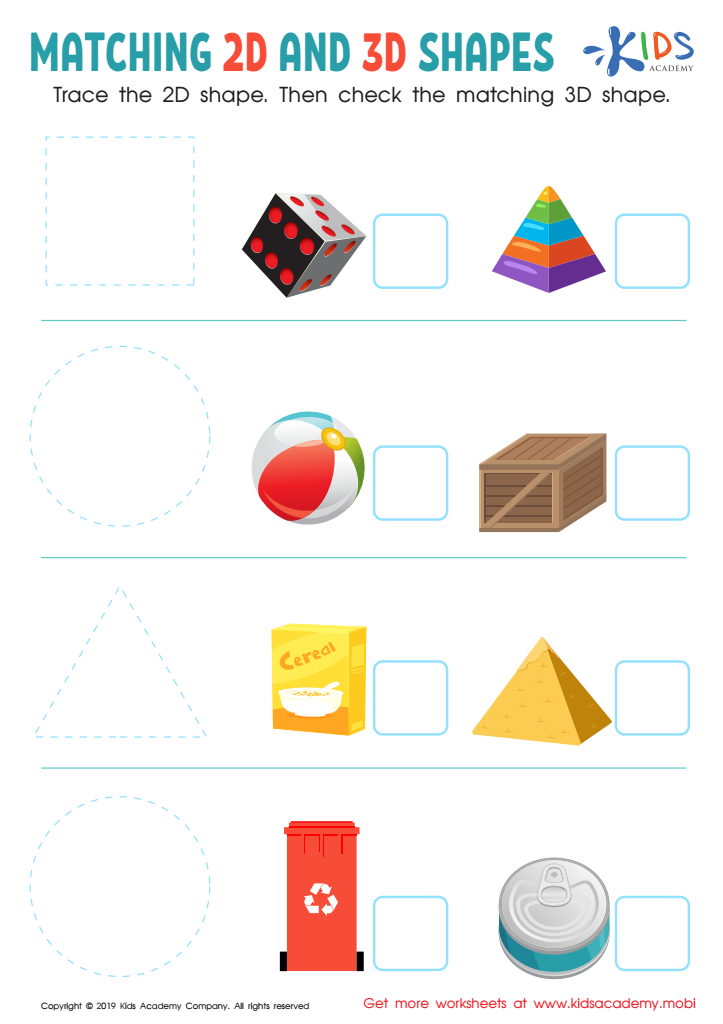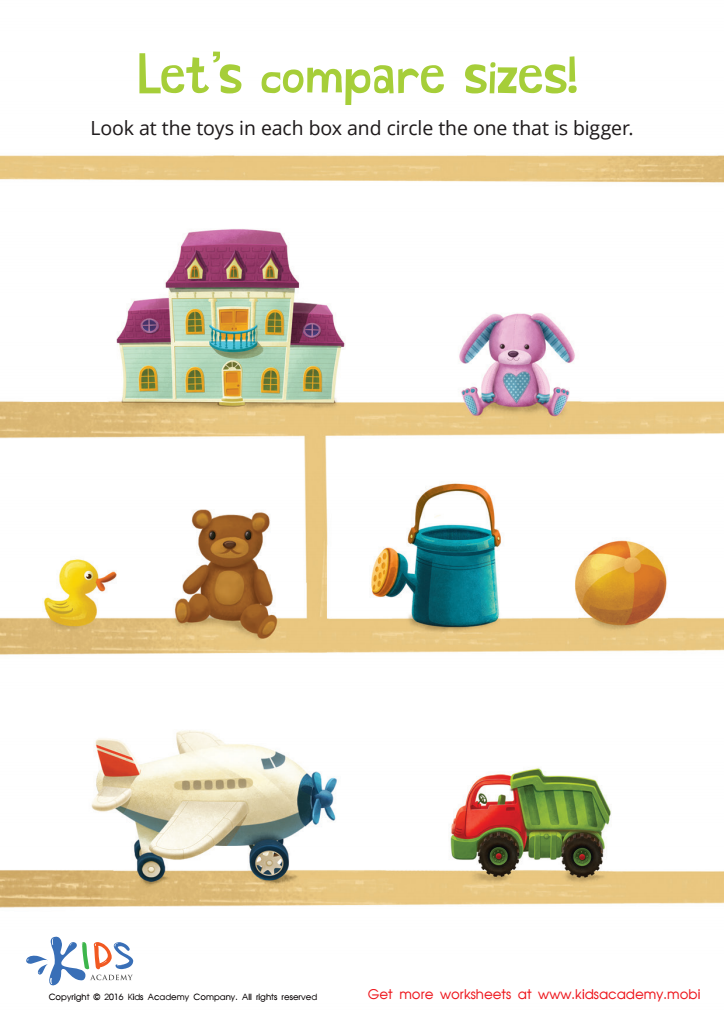Comparing objects Extra Challenge Math Worksheets for Ages 3-4
3 filtered results
-
From - To
Introducing our Comparing Objects Extra Challenge Math Worksheets for Ages 3-4! Designed to stimulate young minds, these engaging worksheets help preschoolers enhance their comparison skills by identifying differences and similarities between objects. Through vibrant illustrations and fun activities, children learn foundational math concepts while developing critical thinking and observation skills. These extra challenge worksheets are perfect for curious young learners ready for an advanced level, promoting cognitive growth in an enjoyable way. Ideal for both classroom and home use, our worksheets provide a strong foundation for future math success. Download now and watch your little mathematician thrive!


Which One Is Heavier Worksheet


Matching 2D and 3D Shapes Worksheet


Classifying by Size Sorting Worksheet
Comparing objects is a foundational skill for young children, and it's essential for parents and teachers to support early learners, ages 3-4, in mastering it. This math activity directly engages children's natural curiosity and helps them develop critical thinking and observation skills. At this stage, kids are beginning to notice differences in size, length, quantity, and other attributes, which lays the groundwork for more complex mathematical concepts like measurement, weight, and volume.
Introducing comparing objects through playful challenges supports cognitive development. By consistently engaging in such activities, children improve their abilities to classify and organize the world around them, enhancing both literacy and numeracy. It teaches them language skills by learning comparative terms like "bigger," "smaller," "longer," and "shorter."
Moreover, these activities strengthen problem-solving skills and logical thinking when children are encouraged to reason out why one object is different from another. They also promote social interaction when done in groups, fostering cooperative learning and communication.
Thus, it’s crucial for parents and teachers to prioritize these enriching activities. They create a solid foundation for future academic success, supporting children’s enthusiasm for learning and building their confidence in handling more complex concepts down the road.
 Assign to My Students
Assign to My Students
















